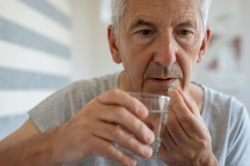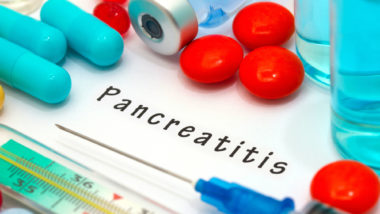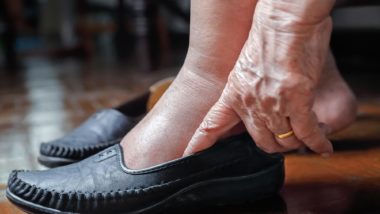Top Class Actions’s website and social media posts use affiliate links. If you make a purchase using such links, we may receive a commission, but it will not result in any additional charges to you. Please review our Affiliate Link Disclosure for more information.

Synjardy is part of a class of drugs known as gliflozins, or SGLT-2 (for “Sodium Glucose coTransporter-2”) inhibitors. These drugs essentially prevent reabsorption of excess blood sugar (glucose) by the kidneys, allowing it to be passed out of the body through the urine. Initially hailed as a new “wonder drug,” SGLT-2 inhibitors such as the Synjardy medication have been linked to numerous serious side effects since their introduction in 2013.
About Synjardy
Synjardy is a combination of two medications. One component is empagliflozin, developed jointly by German pharmaceutical firm Boehringer-Ingelheim and Eli Lily and Company and marketed under the brand name Jardiance. The other component is metformin, which is based on an extract from a plant known as galega officinalis, or French lilac, long used as a folk medicine.
Jardiance was first approved by the FDA for the U.S. market in 2014. Although it is not indicated for type-1 (childhood onset) diabetes, it can also be used in conjunction with insulin for type-2 diabetics who are insulin-dependent.
Known Side Effects of Gliflozin Drugs
SGLT-2 inhibitors have been linked to urinary tract infections, joint pain, diabetic ketoacidosis and fungal infections of the genital region. One of the first gliflozin medications to gain FDA approval, Invokana (canagliflozin), has also been found to lead to lower limb amputations.
As a class of drugs, SGLT-2 inhibitors have recently been linked to the development of Fournier’s gangrene.
About Fournier’s Gangrene
The scientific name for gangrene is “necrotizing fasciitis.” As the term implies, this is essentially the death of localized tissues, caused by a lack of blood flow. Fournier’s gangrene specifically targets the external genitalia and perineum region. Primarily affecting males, Fournier’s gangrene initially presents as sudden scrotal pain and swelling, followed by fever and overall weakness. Although the condition begins beneath the skin surface, it quickly appears as patches on the skin that eventually become necrotized.
While the disease is rare (it affects 1 out of 62,500 males annually), diabetes is a major risk factor. A study published in 2006 in the World Journal of Surgery found that nearly half of Fournier’s gangrene victims had blood sugar levels higher than normal.
Synjardy Medication and Other Gliflozin Statistics
Over a five-year period between March 2013 and May 2018, the FDA received 12 adverse reports of patients who developed Fournier’s Gangrene while taking SGLT-2 inhibitors. Surprisingly, almost half of the victims were female; as previously noted, this disease rarely affects women. All 12 victims developed the disease within 10 months of starting the medication.
In contrast, among other diabetic patients taking other glucose-lowering medications, only six cases of Fournier’s gangrene were discovered between 1984 and 2018.
It is strongly recommended that patients taking the Synjardy medication or another SGLT-2 inhibitor for diabetes seek medical attention immediately if they begin to experience any of the symptoms noted above.
Join a Free Diabetes Medications & Flesh-Eating Infection Lawsuit Investigation
The type-2 diabetes medications linked to the flesh-eating infection include:
- Invokana
- Invokamet/Invokamet XR
- Farxiga
- Xigduo XR
- Qtern
- Jardiance
- Glyxambi
- Synjardy/Synjardy XR
- Steglato
- Segluromet
- Steglujan
If you or a loved one took one of the type-2 diabetes medications listed above and suffered from a flesh-eating genital infection, you may qualify to join this diabetes medication lawsuit investigation. Fill out the FREE form on this page for more information.
ATTORNEY ADVERTISING
Top Class Actions is a Proud Member of the American Bar Association
LEGAL INFORMATION IS NOT LEGAL ADVICE
Top Class Actions Legal Statement
©2008 – 2024 Top Class Actions® LLC
Various Trademarks held by their respective owners
This website is not intended for viewing or usage by European Union citizens.
Get Help – It’s Free
Join a Free Diabetes Medications & Flesh-Eating Infection Lawsuit Investigation
If you qualify, an attorney will contact you to discuss the details of your potential case at no charge to you.
PLEASE NOTE: If you want to participate in this investigation, it is imperative that you reply to the law firm if they call or email you. Failing to do so may result in you not getting signed up as a client or getting you dropped as a client.
E-mail any problems with this form to:
Questions@TopClassActions.com.
Oops! We could not locate your form.












